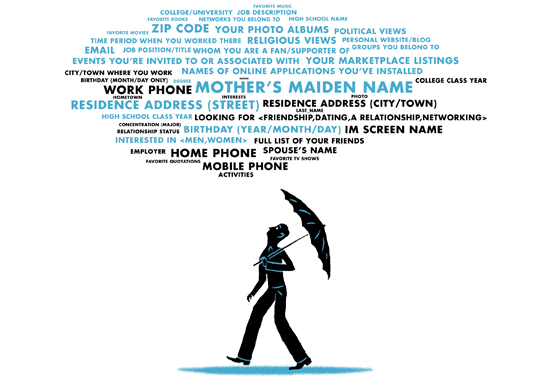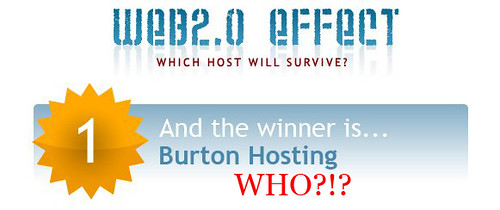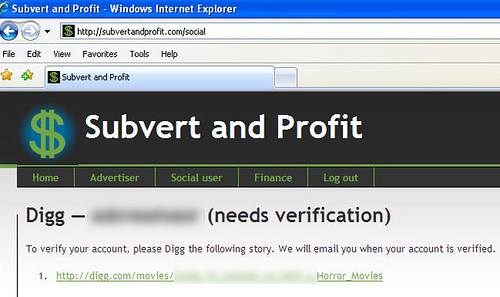This is a guest post by Jason Butlion.

The way that we explore and discover content on the Internet has drastically changed in the last decade. The first major step forward was with Google which organized the Internet so that anyone could run accurate searches on specific topics they found interesting. The next evolution in content discovery came with the social revolution. The introduction of social feeds by Facebook, Twitter and other social networks changed the way that people discovered content. Instead of having to actively search for new and interesting things, our friends were doing the work for us. This crowdsourced, automated method of discovering popular content was a drastic improvement in how we found interesting information and media on a daily basis. This change in content consumption and the viral features introduced by many web companies has now created an overabundance of information which in many cases is no better than spam. This post will highlight how the high adoption of popular social and content orientated platforms has resulted in an overwhelming exposure to too much content too much of the time. I will also cover some of the popular ways that power users use useful services and features to better organize and aggregate the constant flow of high quality, popular content.
One of the best examples of how this overabundance has done harm is with daily deal sites. At first, it was great to receive one or two emails in your inbox with some cool deals, but now people are sick of it and consider it a new form of spam. Another new form of spam which many are familiar with is how Facebook applications constantly push triggers and notifications to us through our friends. Fortunately Facebook has enabled users with ways to limit this form of targeting and has changed its policies for app developers numerous times.
Some companies have come to understand that everyone has their own personal Internet and need a range of highly personalized content linked to their interests. Two of the most successful companies in this space are StumbleUpon and Flipboard. Both companies use advanced algorithms to bring highly personalized content right to their users.
Popular blogging platforms like WordPress, Blogger and Tumblr have make it possible for anyone to publish content on the Internet in a matter of minutes. Everyone now has a voice online and can create a following. Services like Twitter and Technorati have made it easier than ever to discover the personalities, influencers and top content sources in any niche.
The web has become much more transparent and thanks to the many social platforms out there, people can now create personal brands and scale their activities to millions of people all across the globe. This capability has resulted in a humanization of the web which rewards those who put in the effort to grow their online presence. The beautiful thing is that everyone can benefit from this, from politicians like Barack Obama to rock singers like Ron Weinrich. The web has made it easier to idolize people linked to our interests and this has resulted in even more content constantly flowing to us through the numerous platforms these personalities use to grow their following.
All these amazing platforms have made the Internet by far the best place to learn and discover new, interesting and popular content. As a result of the steady increase in the rate of content being produced every day, it has now become impossible to keep up with all this quality content. Power users, especially those working in the Internet space, are having to spend more time reading and viewing new content in order to stay a head of the game and keep up with trends in the market.
Fortunately there are some ways to help with aggregating and sorting the numerous resources we use online to find the latest and greatest. Google Reader is a great free service which consolidates your blog subscriptions into a single, convenient reader. Instead of receiving an email each time one of the blogs you follow publishes a post, simply add the blog to Google Reader and view the latest posts straight from the service.
We are consuming more and more content from our social feeds. One of the best ways to filter specific posts and updates into interests is by creating lists. Both Twitter (Guide to using lists in Twitter) and Facebook (Guide to using lists in Facebook) have the lists feature which you can use to separate individuals you subscribe to into their respective niches.
I’m a fan of the read later service Pocket which makes it easy to save individual web pages for future viewing. I stumble upon many articles and blog posts every day but don’t have the time to read everything I come across right there and then. I use Pocket to view these articles from my phone during my down time like when traveling on the bus.
The pace of the web is increasing and as a result we are losing out more and more as new content falls out of our scope. What the Internet needs is a service which uses the combined power of all of its users to aggregate the best and most popular content around every interest. Only by leveraging the combined efforts of the entire Internet, can it be scaled down to provide the best out there for every individual. I am excited to be trying to tackle this issue with my own startup, Bmark and hope one day to be able to show everyone the best and most popular of their own personal Internet.
If you use other services to help aggregate content around your interests then please let us know in the comments section below.
Justin Butlion is the co-founder and CEO of Bmark, a content discovery service which brings you the latest and greatest content around your interests. Follow Justin on Twitter at @justin_butlion. Justin also loves to blog at TheGreatGrind.





Social media updates and what-have-you can really tax anyone… but another service to handle all these (hootsuite does that and seesmic too) might just end up to become another password or account to remember (or forget).
What everyone needs is to rationalize their usage of social media and use of a password creator/manager is definitely a must-do.
To paraphrase Clay Shirky, it’s not just about information overload but that of ‘filter failure’.